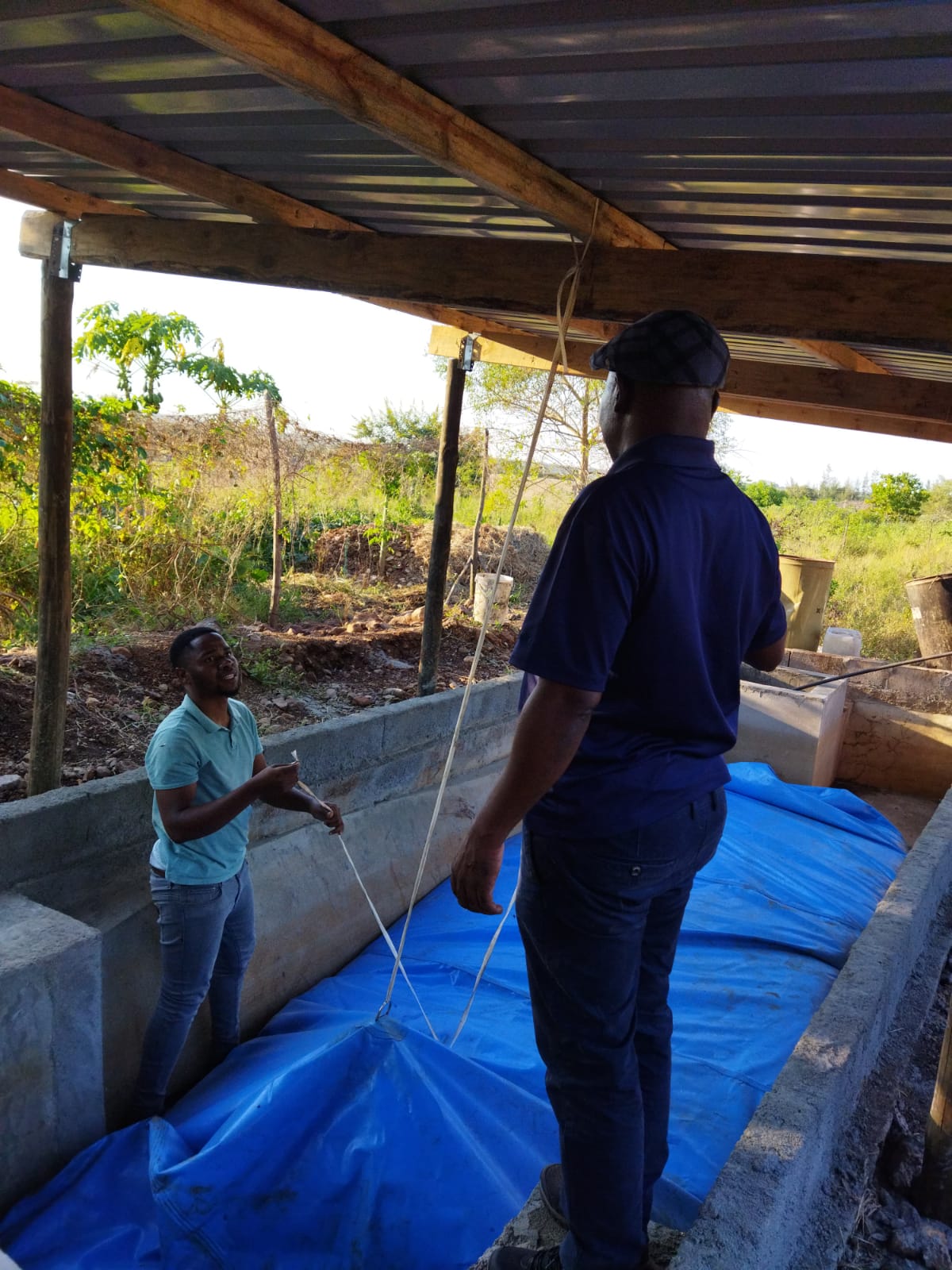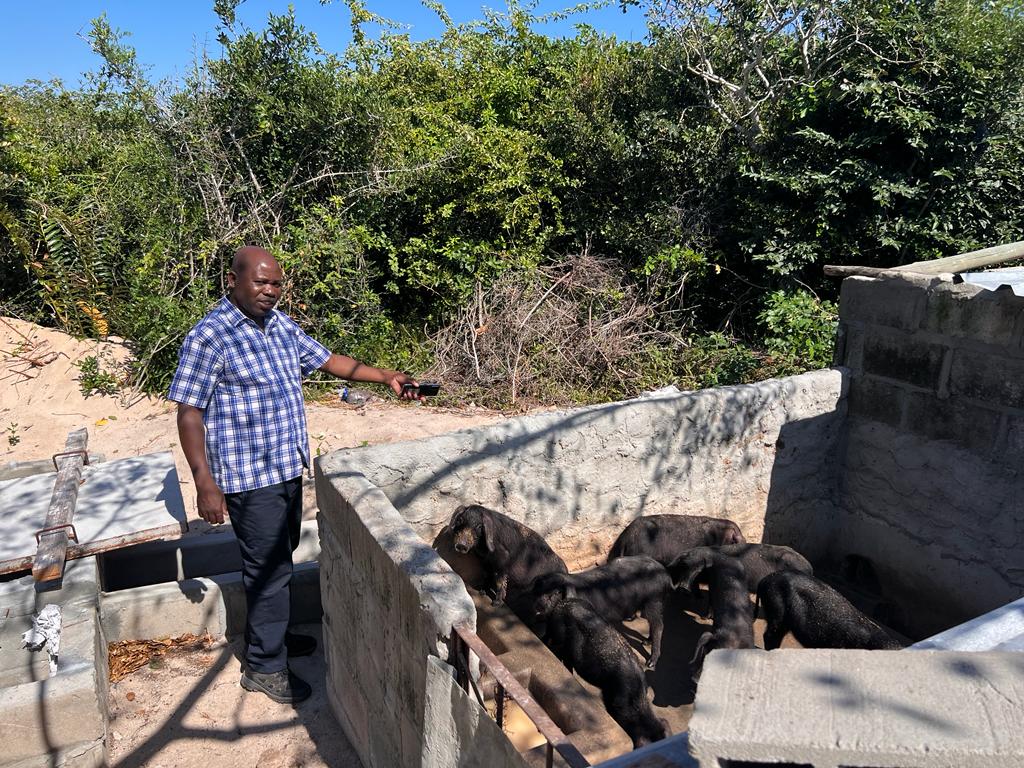
Biogas is a form of renewable energy that depends on microorganisms that converts fermentable organic matter into a combustible gas and matured organic manure. It is a by-product of the anaerobic decomposition of organic matter including vegetable and animal waste, organic waste from industrial processes (from abattoirs, food canning, fruit juice, and diary production), biowaste from households, wastewater and agricultural crops.
According the Ministry of Energy, Mozambique is endowed with vast biomass resources for electricity generation including residues from more than 1.7 million hectares of forest plantation, industrial and agro industrial waste, waste materials from manufacturing industries of wood and plant materials, and waste from Sugar cane foliage derived from a total plantation area of more than 40.000 hectares
The enormous resources notwithstanding, Mozambique continues to grapple with challenges as regards to the adaptation of biogas technology.
TSE4ALLM interacted with Prof. Antonio Cumbane, a renown biogas technology supplier and founder of Engenharia de Processos Ambiente, Consultoria e Servicos (EPACS) Lda and here is what he had to say about biogas technology development in Mozambique
TSE4ALLM : Briefly talk about biogas technology application in Mozambique
A.C: Biogas research and application is still very scarce in Mozambique despite the existence of abundant animal and plant waste and also in urban areas with plenty of food waste which can be utilized as feed stock for the generation of biogas.
TSE4ALLM : Why are rural areas slow in taking on biogas
A.C: Our communities are not aware of the application of the technology. one of the major challenges is the segregation of waste, when you segregate the waste then you increase the value of it to be used as feed stock. The challenge especially in rural areas is how to enable communities set aside feed stock without mixing it with sand / soil once mixed with soil, it loses value.
TSE4ALLM : What are the opportunities for biogas technology in Mozambique?
A.C: There are a lot of opportunities for the development of biogas technology in Mozambique given the fact that Mozambique’s economy predominantly depends on Agriculture where a lot of waste is produced through animals (cows, pigs, etc) and plants.
TSE4ALLM : Which feed stock is most suitable for biogas technology in Mozambique?
A.C: The most convenient source of feedstock is the swine since its grown in a more confined environment and we can get 100% of its waste unlike other animals that keep moving from one place to another while grazing. For cow manure, during the day they go out and come back to a confined state, this is a bit challenging to obtain considerable manure for the feedstock. We also have plant waste e.g. from vegetables, sugarcane. However, the challenge is in the lack of competent industries to process this waste

TSE4ALLM : What are the pre-requisites for choosing a biogas plant?
A.C: In the first place, you need to consider the feedstock needed for the plant and the quantity of the same, how much is available? then consider the design of the plant
TSE4ALLM : How can biogas technology be made accessible to rural communities?
A.C: In most cases equipment needed for the biogas technology is imported and the cost are high but this does not mean that equipment cannot be made locally to suit the local needs especially in rural areas. Adaptation of technology is done for example for filtering bottles can be adapted for the purpose of ensuring that gas can come in and out where by water can be separated from the gas, cotton can also be used to filter the water. A mixture of iron and coal can be used. It not needed to import everything. Local materials can be utilized
TSE4ALLM : What are the Social-economic benefits of biogas technology?
A.C: Biogas can improve the wellbeing of the communities because it is an environmentally friendly technology and promotes a clean cooking environment. Economically, its essential because it can reduce the cost of energy used because it can also be converted to electricity.
TSE4ALLM : How can we ensure effective planning and implementation of biogas projects in Mozambique?
A.C: We need to have all stakeholders involved; people trained for the maintenance. Maintenance is a big challenge, you cannot just handover the project to anyone. There is need to train people who will manage the day-to-day operation of the technology. It is always important to keep in touch with the experts to inform of any problems detected along the way.
Awareness raising on the use and benefits is the solution to encouraging communities to adapt renewable technology
Monitoring the feed is also necessarily to prevent any infiltration from the sand. The sand can block the gas in biodigesters. It is important that the feedstock is cleaned up. The amount of organics in the gas can have an influence on the quality.
TSE4ALLM : How biodigester cleaning done?
A.C: There is cleaning up of the biodigester and the cleaning up of the feedstock. For the feedstock, ensure that the communities adopt cemented kraals and clean up the waste in case of any leakages. For the biodigester, it is important to clean both the inlet and outlet.
TSE4ALLM : What is the future of biogas technology in Mozambique?
A.C: There is need for policies that promote the technology. The government needs to promote the technology but the private sector needs to come on board for the massification of the technology.
Awareness rising among communities needs to be done regarding the advantages and application of the biogas technology

